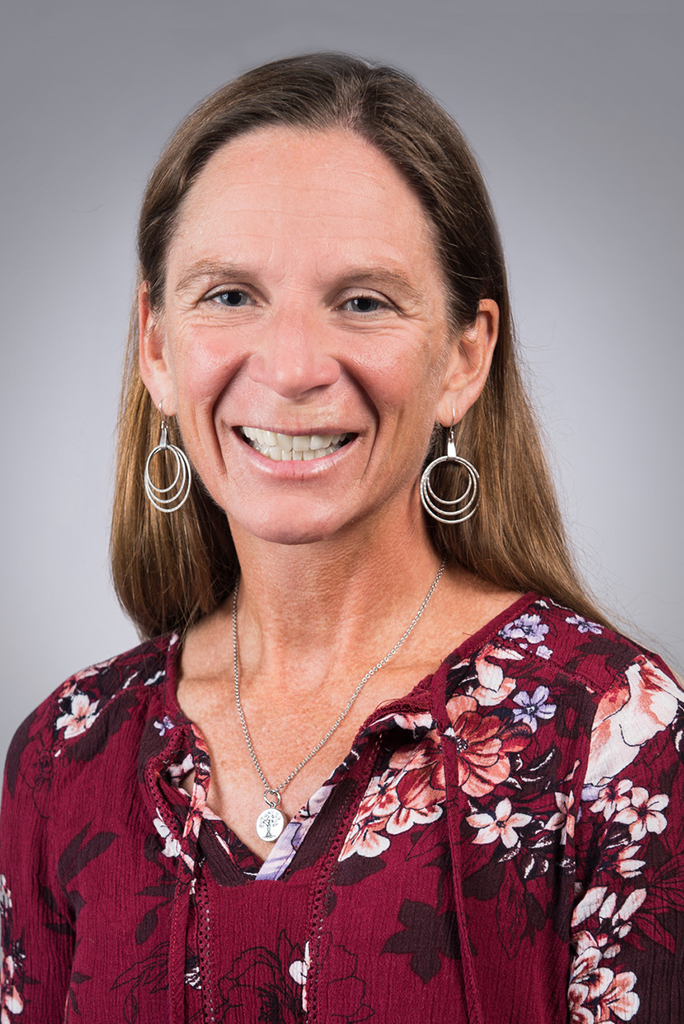Published on

Pam Bruzina, professor of nutrition and exercise physiology, was appointed the first Faculty Ombudsperson in spring 2023. As was previously announced, she officially started the role in July, and the Ombudsperson webpage was launched in August.
Bruzina applied to the position because of her experience serving on the Grievance Resolution Panel. She observed that faculty members might have issues that didn’t quite fit within the formal grievance process. She saw this new role as a way to help faculty find solutions to their concerns before they grew into larger problems.
An ad hoc committee, created by Faculty Council, recommended to the Provost that the position be created, listening sessions were held, and an internal search was conducted last year. The search committee also looked at other SEC universities that had similar roles. Some had a university ombudsperson for faculty, staff and students; others had more than one faculty member who served as a part-time ombudsperson.
What kinds of issues does Bruzina expect faculty to bring to the Ombudsperson? Since she is just starting this semester, it is hard to know what will arise, but a potential example is an issue with the promotion and tenure or post-tenure review process that the faculty member wants to talk to a neutral party about. She is available to meet with all tenure track and non-tenure track faculty.
“It could be questions of fairness within a department or faculty being treated fairly,” says Bruzina, “But people can come with any concern that they have, no matter how big or how small.”
The process begins with a faculty member contacting Bruzina either by email at ombuds@missouri.edu or by phone at (573) 882-4137. Any specific information shouldn’t be discussed in the email except for setting up the initial appointment. She will eventually have a private office in Gentry Hall, but, until it is ready, she can meet anywhere on campus for a confidential appointment. She is the only one in the office keeping track of the appointments and does not keep permanent notes or records about individual cases.
After the appointment is set, the resolution process will be tailored to each person’s needs. She will listen and they can brainstorm solutions together. If their issue belongs in a formal process or should be referred to another office, she will provide that information to the faculty member so they can decide whether or not to follow up.
“First I will be listening, trying to understand what the situation is, what the faculty member sees as a possible resolution, what they’re hopeful might happen, and then working with them to come up with pathways to getting there,” says Bruzina. “It could be that some people feel like the issue has been resolved just because they have been listened to and heard.”
The only exceptions to disclosing confidential information would be if Bruzina feels like the faculty member is in danger or if the issue should be reported to the Office of Institutional Equity, since the Ombudsperson is a mandated reporter.
The position is housed within the Office of the Provost for reporting purposes but is considered to be an independent role. One advantage of this, Bruzina points out, is that any systematic issues that arise can be reported to the Provost, so if there are issues within general processes or procedures that are causing problems, they can be identified.
Bruzina also wants everyone to know her position is impartial.
“I’m not there to take sides, but really to help find resolution to the issues,” she says.
Since the Ombudsperson appointment was announced, Bruzina says she has already received appointment requests, which validates the need for the role. Her goal is to respond to individual requests or inquiries within 24 hours so people receive a prompt response. Currently, she is trying to make appointments with faculty as soon as possible, and then there may be additional follow-up steps that are necessary after that point.
“Provost Ramchand listened to Faculty Council and the ad hoc committee’s recommendation to create an ombuds position and is supporting it with resources,” says Candace Kuby, associate provost for faculty success. “We hope faculty will visit the MU ombuds website to learn more about this faculty support and recommend colleagues reach out to Pam Bruzina, even if an issue seems small.”
Read more about the Faculty Ombudsperson or email ombuds@missouri.edu with questions or to make an appointment.